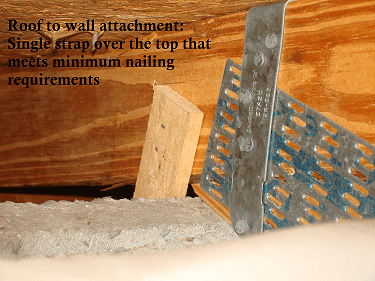Who is eligible for a wind mitigation inspection discount?
The State of Florida requires all insurance companies to offer wind mitigation discounts to Florida homeowners. Wind insurance credits are obtainable on the building features that reduce damage during high winds on all single-family homes, townhomes, condominiums, and commercial buildings. Many existing structures have one or more of the wind-resistivity construction features already. Homeowners, as well as condominium associations, qualify for wind mitigation credits.
How do I save money?
The State of Florida requires insurance companies to offer
reduced rates for certain wind mitigation features. A wind mitigation
inspection must be performed by a certified wind mitigation inspector; Home
Inspector, Building Code Inspector, an engineer, an architect, or any other
individual that holds the necessary qualifications as described by Florida
Statues. A wind mitigation inspector
will document features of your home on the required OIR-B1-1802 Wind Mitigation
form and take photographs of them, which when applied to your insurance policy
will decrease the cost of your homeowner’s insurance.
How much money can I save with a Wind Mitigation Inspection?
Wind mitigation features are mandated by state law and can total 45 percent of the original windstorm policy’s premium. Insurance companies are required to offer discounts for features that qualify for wind storm credits. A Wind Mitigation Inspection can save you as much as $1,260 on a homeowner’s insurance policy of $2,800.
How much does a wind mitigation inspection cost in Florida?
The cost of Wind Mitigation Inspections varies by region in
Florida. Orlando Wind Mitigation
Inspection costs average $200. Miami
costs are around $225 while the cost of North and Central Florida remains
between $150 and $200. A wind mitigation
certificate is good for five years. Once
you have your Wind Mitigation Certificate it will reduce your premium and save
you hundreds if not thousands of dollars each year.
How do I schedule a wind mitigation inspection in Central Florida?
Call for Insurance Inspection Quotes at 386-624-3893. For more information Seminole County Wind Mitigation .
 |
| Frank Carr, Florida Licensed Home Inspector |
E-Mail: home.inspections@aol.com











